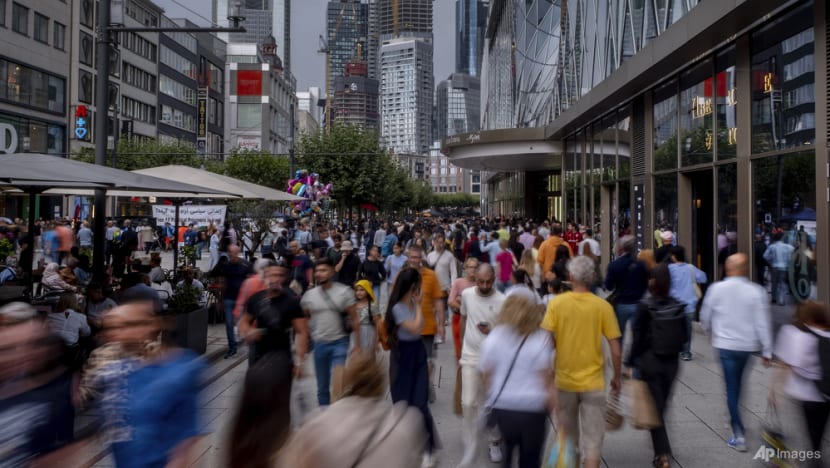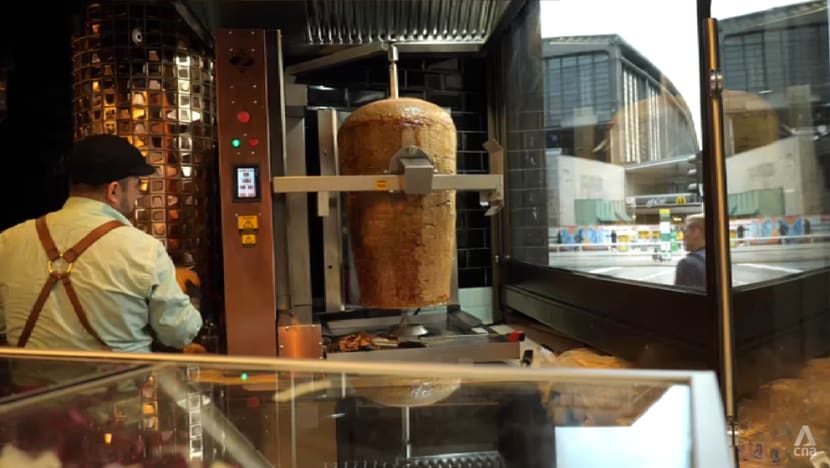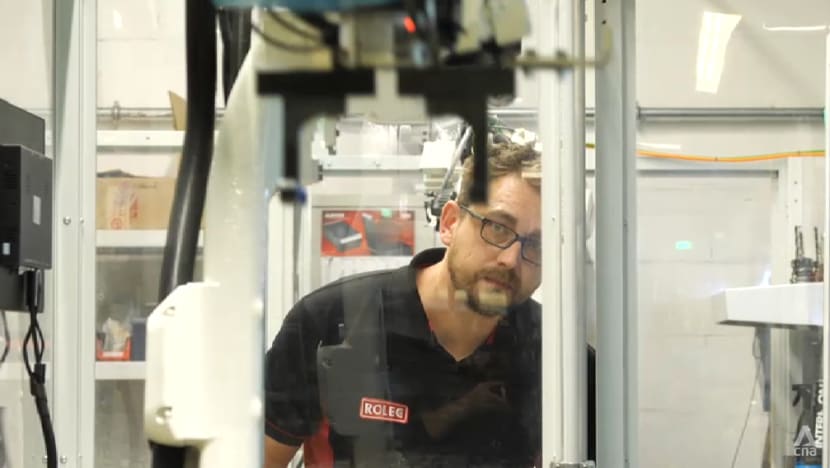‘Germany is not a sick man’: Europe’s largest economy struggles, but sees some signs of hope
In 2023, Germany's gross domestic product (GDP) contracted 0.3 per cent year-on-year, just avoiding a technical recession but still firmly stuck in stagnation.


This audio is generated by an AI tool.
BERLIN: Germany, Europe's largest economy, is struggling as record inflation, high energy prices and geopolitical tensions hamper growth.
In 2023, its gross domestic product (GDP) contracted 0.3 per cent year-on-year, just avoiding a technical recession but still firmly stuck in stagnation.
Observers said recent shifts in global trade and commerce are making it harder for German businesses to compete in the areas that they once dominated.
OTHER EUROPEAN CAPITALS WATCHING CLOSELY
“Germany is overexposed to foreign demand, particularly in China. What we see right now is that China's demand is slowing and German exports to China are slowing, and so Germany is not doing so well,” Dr Tobias Gehrke, a senior policy fellow at the European Council on Foreign Relations, told CNA.
“(Increasingly), China is a competitor to German industry and so the big task for Germany is to create other growth motors beyond China, in Europe and other markets. And that's a very challenging task.”
Now, other European countries are closely monitoring Germany’s economic situation.
Seeking to allay concerns, Germany’s Finance Minister Christian Lindner said the country “is not a sick man” of Europe.
“After a very successful period since 2012 and these years of crisis, Germany is a tired man after a short night”, he added.
“And low growth expectations are partly a wake-up call, and now we have a good cup of coffee, which means structural reforms and then we will continue to succeed economically.”
However, as Germany tries to jumpstart its economy, experts believe it has to consider the needs of the broader European economic engine, in order to avoid a subsidies race that could hurt its European Union (EU) neighbours.
MORE TIME NEEDED TO GET OUT OF ECONOMIC WINTER
“In the rest of Europe, particularly in smaller and middle-size economies, there's a lot of unease at the way Germany wants to come out of this economic slowdown, (which) is much more national-focused,” said Dr Gehrke.
“We see that Germany is spending massive national subsidies for its economy and is pushing in Brussels, saying 'we want to spend much more nationally'. And many other capitals say that it is a huge risk.”
But there are some signs that the situation is improving.
Recent data revealed that inflation for January dropped to 2.9 per cent, the lowest levels since 2021, and well below the peak of 10.6 per cent in October 2022.
Yet, the International Monetary Fund noted that this year, growth is expected to remain well below the average for the world's advanced economies.
With the European Parliament elections set to be held in June, the state of the EU economy will likely remain one of the top issues for voters, said analysts.
Traders at Berlin's Winterfeldt Market are concerned that inflation and higher costs will affect their businesses.
“People are buying less. They are worried about problems in the world, in Europe,” said Mr Angelo Restial of Marmalione Italian Kiosk.
“Everything has become more expensive because of inflation. We have to follow along. Diesel is more expensive, food is more expensive, everything is expensive.”
TURNING TO ROBOTS TO TACKLE LABOUR SHORTAGE
Meanwhile, German companies are worried about the economic impact of demographic changes in the country.
An ageing population is placing pressure on firms, particularly in the manufacturing sector, as skilled workers retire and managers struggle to fill their positions.
To tackle worker shortages, firms are increasingly turning to robots.
At Zaddy's Doner in Berlin, for instance, a computer-powered chef is in the kitchen to help manage customers.
Robots like this are an increasingly common sight across Germany, which is Europe's biggest robot market and the fourth largest in the world.

Germany accounts for 33 per cent of Europe's robot inventory.
From simple tasks to more complicated processes, robots are being seen as a solution to account for millions of baby boomers leaving the workforce, said observers.
Manufacturers such as ROLEC, which have invested in robotics in recent years, said attitudes towards automation are changing. Family-run ROLEC produces systems to protect industrial electronics and control equipment.
“What I have seen is the reservations of our people against automation and robots have changed to openness and acceptance in the last 10 years,” said ROLEC CEO Matthias Rose.
“They have learnt that production has to be improved to continuously stay competitive, so they now see automation today as a chance rather than a risk or competition.”

GOVERNMENT WORKING ON NEW MEASURES
While some unions have expressed concerns over human roles being outsourced to automation, robotics manufacturer Sherpa Robotics said that robots can boost employee experience in the workplace.
SHERPA Robotics general manager Eike Langenberg said: “Nobody likes to do tiring and dirty jobs, and a lot of young talents do request factories to have robots in place so that is a reason for them to join a company.”
Manufacturing has long been one of the main pillars which has helped Germany retain its place among the world's largest economies.
But industry leaders continue to face severe shortages when it comes to staff. Many firms are now turning to robots and are seeing a small boost in productivity.
Related:
Companies such as ROLEC highlighted the lack of time constraints placed on machine-based manufacturing.
“The system is very flexible,” said Mr Rose. “The biggest advantage is that we have created an additional night shift without workers, and so I think it is a good way to face the lack of skilled workers”
But even with the robotic assistance, more than 2 million jobs remain unfilled across Germany.
The government is working on new measures, including courting workers from overseas through a loosening of immigration rules.
But some advocates believe robots could just hold the key to both speeding up production and addressing the talent shortage.















